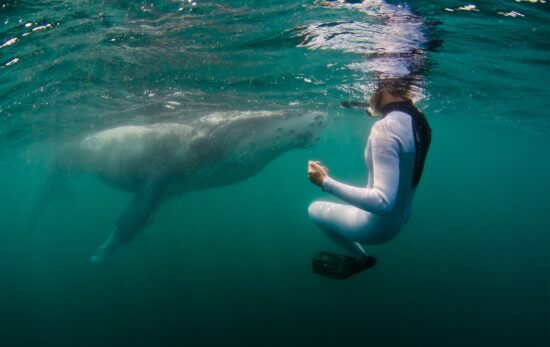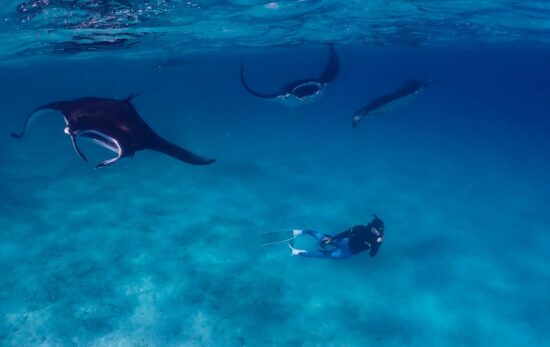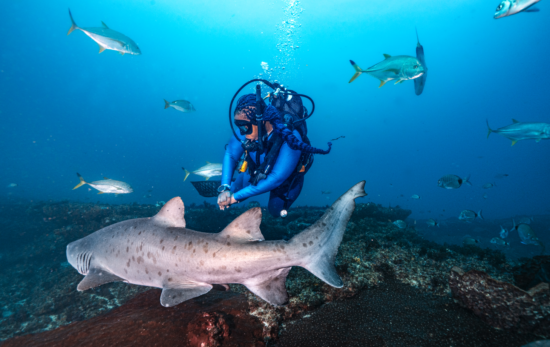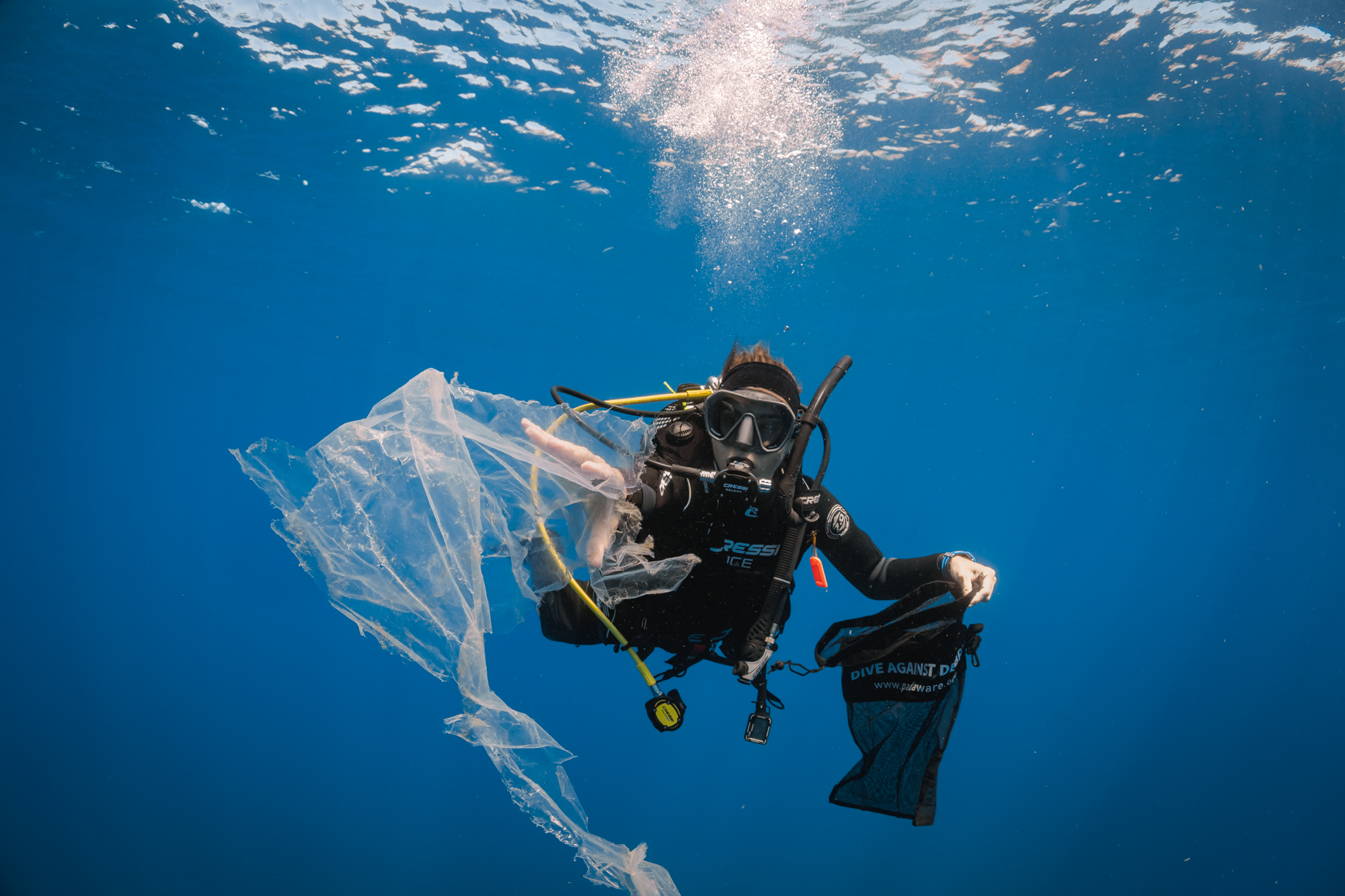Looking at our planet from outer space, the first signs of life are coral reefs. Once these incredible structures were seen simply as a hazard by those who explored the oceans. Now we know that, like the rainforests, they are vital to our survival.
Here are some things you can do to protect coral reefs. This list is from the National Oceanic and Atmospheric Administration’s (NOAA) Coral Reef Conservation Program:
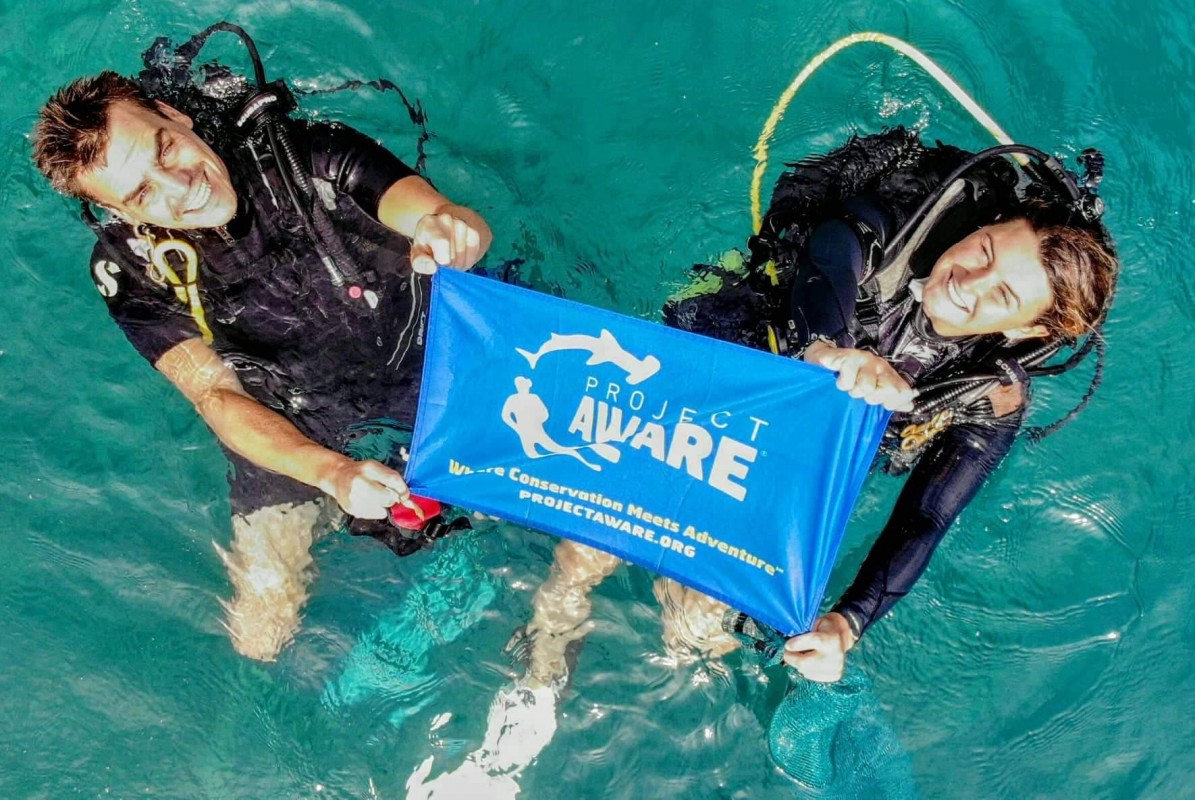
Educate yourself about coral reefs and the creatures they support. How many different species live in reefs? What new medicines have been developed from reef organisms? Participate in training or educational programs that focus on reef ecology such as the PADI Project AWARE Specialty. When you further your own education, you can help others understand the fragility and value of the world’s coral reefs.
Be a wastewater crusader! Make sure that sewage from your boat and home is correctly treated. Excess nutrients in wastewater can negatively impact coral reef ecosystems.
Support organizations that protect coral reefs. Many groups have coral reef programs, and your support will make a big difference.
Don’t use chemically enhanced pesticides and fertilizers. Although you may live thousands of miles from a coral reef ecosystem, these products end up in the watershed — the area that drains to a common waterway, such as a stream, lake, estuary, wetland, and ultimately, the ocean.
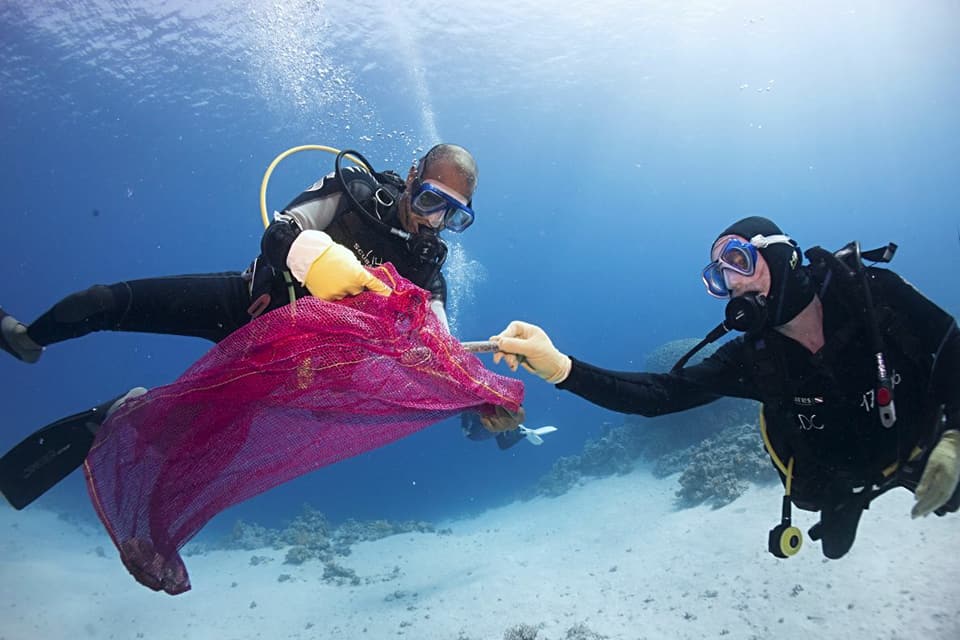
Volunteer for a Dive Against Debris. You don’t live near a coral reef? Then consider visiting a coral reef on your next vacation. Spend an afternoon enjoying the beauty of one of the world’s treasures while helping to preserve it for future generations. Want to organize your own Dive Against Debris? Check out how here.
Be an informed consumer. Only buy marine fish and other reef organisms when you know they have been collected in an ecologically sound manner. Ask store managers which coral reefs the organisms come from and how they were collected. Does the country have a management plan to ensure the harvest was legal and sustainable over time?
Visit your local aquarium or zoo. Ask what they are doing and how you can help conserve our coral reefs. The answer may pleasantly surprise you.
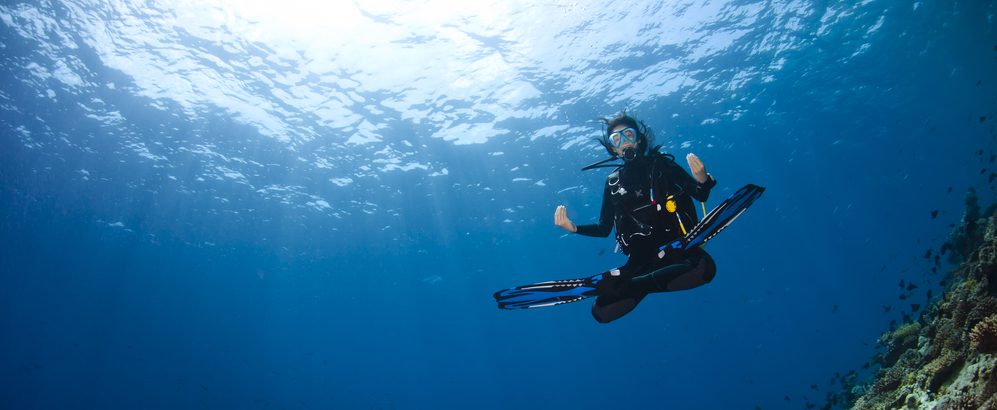
If you dive, don’t touch! Take only pictures and leave only bubbles. Keep your fins, gear, and hands away from the reef, as this contact can hurt you and will damage the delicate coral animals. Maintain excellent buoyancy control and stay off the bottom because disturbed sediments can smother the corals.
Support reef-friendly businesses. Ask what your dive shop, boating store, tour operator, hotel and other coastal businesses are doing to save coral reefs. This is especially important in coastal areas with reefs. Let them know you are an informed consumer and care about reefs.
Recycle. This helps keep trash out of the oceans and also out of landfills where it can have an adverse impact on the water quality of our rivers and oceans.
Conserve water. The less water you use, the less runoff and wastewater eventually find their ways back into the oceans.
Become a volunteer monitor! Participate in community coral reef monitoring programs. If you do not live near a coast, get involved in protecting your watershed.
Report dumping or other illegal activities. Help be the eyes and ears of the reef! Your involvement can make a big difference.
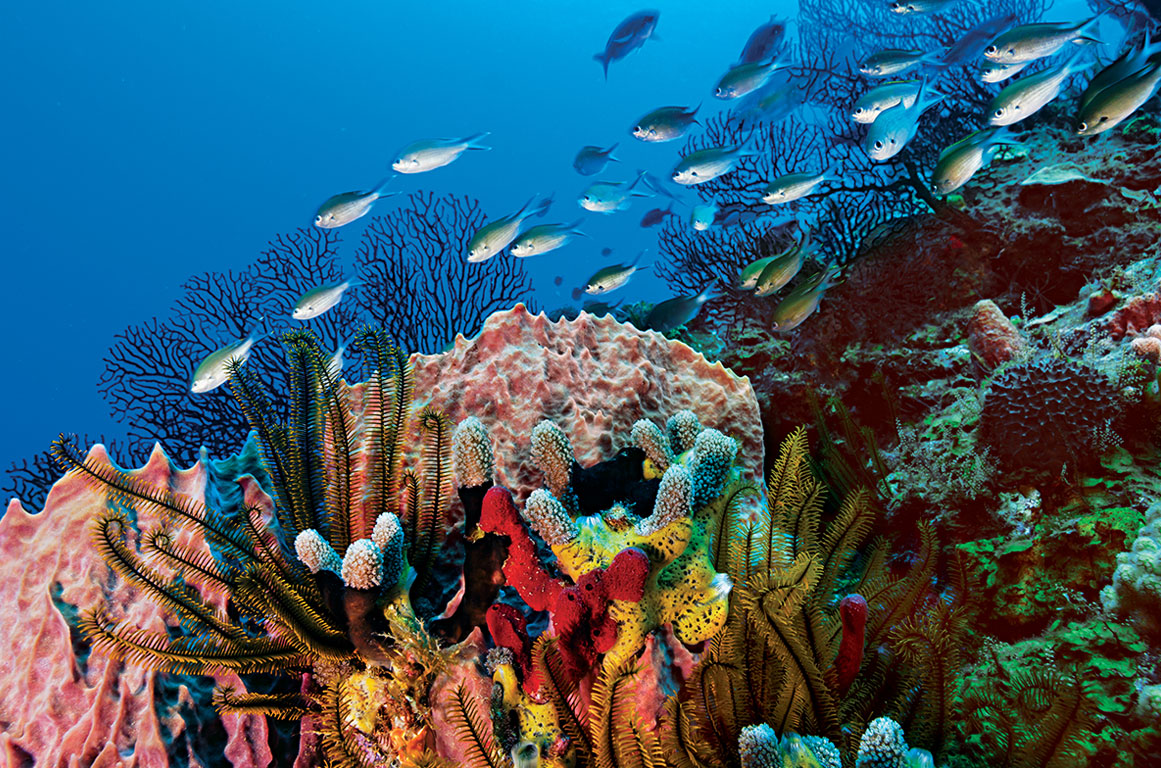
Hire local guides when visiting coral reef ecosystems. This will help you learn about local resources, and protect the future of the reef by supporting the local economy.
Don’t anchor on the reef. If you are boating near a coral reef, use mooring buoy systems when they are available.
Participate in the Great Annual Fish Count. What better way to enjoy your vacation than snorkeling or diving in America’s coral reefs? The Fish Count helps scientists better understand coral reef fish populations.
Respect local guidelines when you visit a reef. Help keep coral reefs healthy by respecting local customs, recommendations, and regulations. Ask local authorities or your dive shop how to be a reef-friendly tourist.
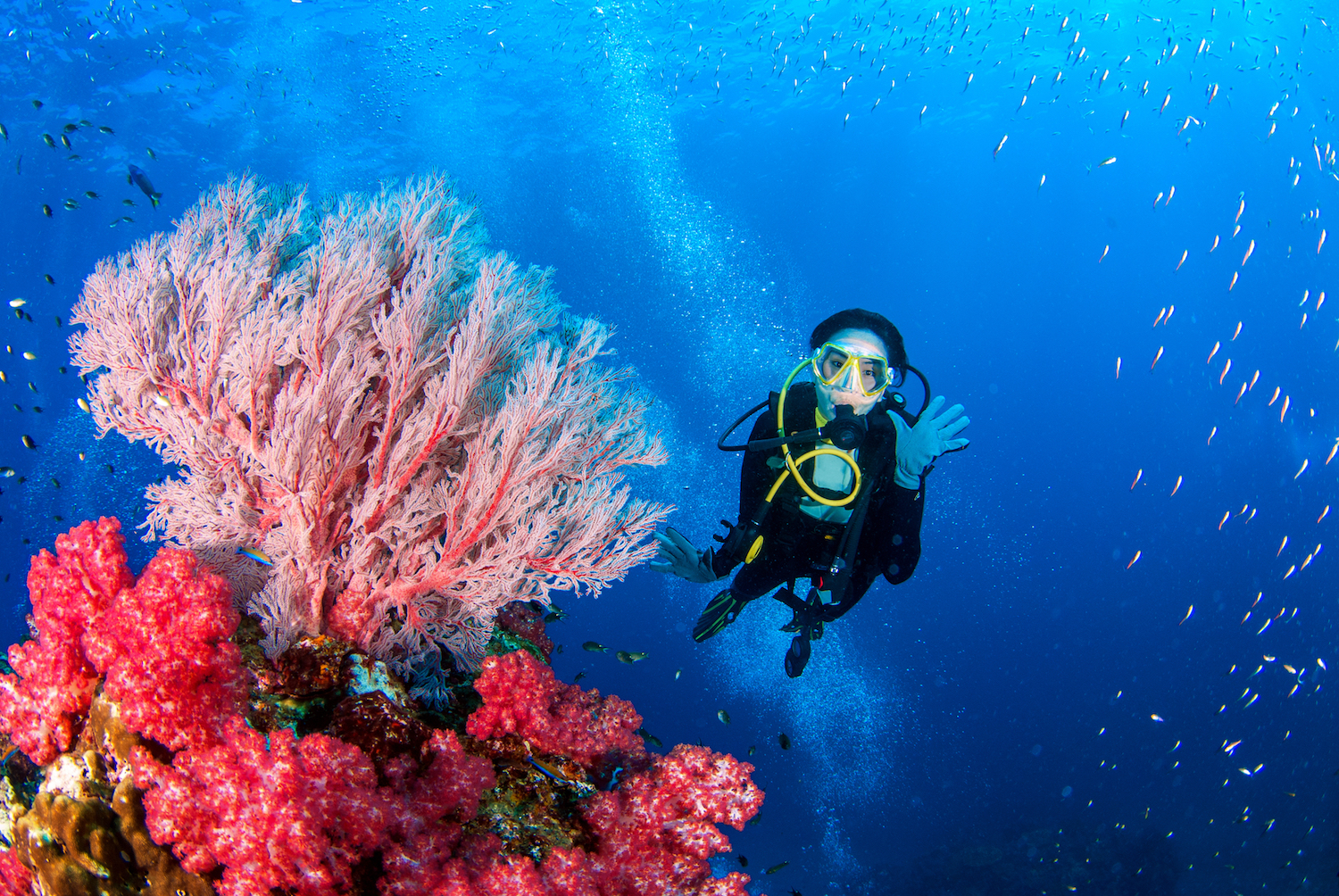
Stay informed. Find out about existing and proposed laws, programs, and projects that could affect the world’s coral reefs. Many websites provide information about coral reefs and what you can do to become involved.
Spread the word. Remember your own excitement at learning the value and importance of coral reef ecosystems. Sharing this excitement gets everyone involved.
Why not get started today? Show your commitment to marine conservation and become a PADI Torchbearer!
This blog was originally written by Jackie Hutchings and published on the Diviac Magazine.
